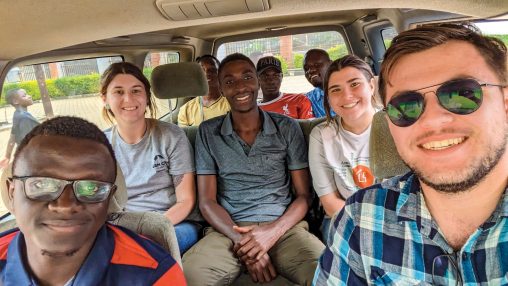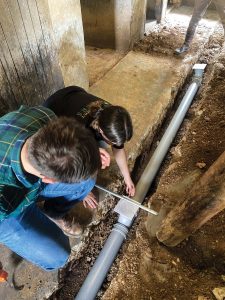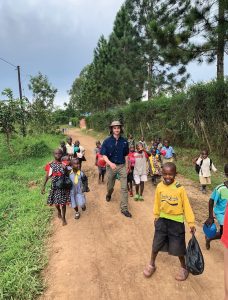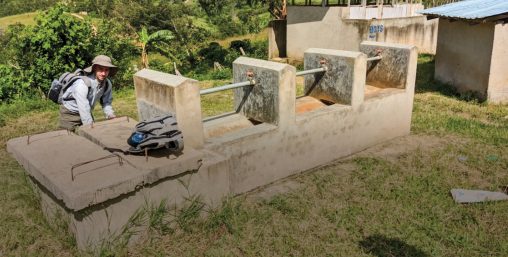 Running water and sanitary washrooms are important for the health of a community, particularly a school. But St. Bakhita’s Secondary School in Uganda has no such luxury, so Wright State University’s Engineers Without Borders chapter stepped in to help.
Running water and sanitary washrooms are important for the health of a community, particularly a school. But St. Bakhita’s Secondary School in Uganda has no such luxury, so Wright State University’s Engineers Without Borders chapter stepped in to help.
In 2022, engineering students evaluated the school’s needs and came up with a plan to bring the students of St. Bakhita’s a cleaner, healthier environment.
Diana Johnson, an industrial engineering major and the president of Wright State’s Engineers Without Borders (EWB) chapter, shared that Wright State has been working with the Cincinnati Professional chapter of EWB since 2019. She said the group has been collaborating on a project working to provide clean water to Kabingo, a small village in Uganda. The project’s goal is to assess and address sanitation needs at St. Bakhita’s.

Wright State’s EWB students began traveling to Kabingo in 2019 to assess the school’s needs. In 2020, students constructed hand-washing stations for the school. Due to COVID-19, students had to put the trips on hiatus for two years.
In May 2022, Wright State’s EWB chapter traveled to Kabingo, where the students evaluated sanitation and interviewed community members to learn about the issues the school was facing. The students identified issues they worked to fix during their trip from December 2023 to January 2024.
The boys’ washroom and latrine had strong odors due to a lack of ventilation. Students also noticed that the girls’ washroom did not drain properly, which resulted in standing water. The water can draw mosquitoes, which carry malaria, a major problem in Kabingo.
In January, the students added ceramic squat plates, toilet paper holders, and handrails to the stalls of the co-ed latrines. They also re-sloped the girl’s washroom floor and installed pipes, which improved drainage. In the boys’ washroom, they added a urinal.
The trip to Uganda in 2023–24 was not the first for mechanical engineering major Taylor Jacobs. In 2015, Jacobs participated in the World Race, an 11-month mission trip where participants spent one month in a different country. She traveled with her church to Lukodi, Uganda, where she worked with ChildVoice, an organization that provides therapy to Ugandans affected by a war in the country’s northern region. ChildVoice gave them a place to recover from trauma and receive education and vocational training.
Jacobs said that, on her first day with EWB in Uganda, she learned about a well drilled by Engineers Without Borders from New Hampshire. The well, Jacobs said, kept the community safe because it gave them a steady flow of clean drinking water.
In 2020, Jacobs decided to pursue engineering. Joining Engineers Without Borders was an obvious decision. 
“When I was getting ready to transfer to Wright State University, I knew I had to join,” Jacobs said. “I saw the impact the organization had on communities locally and internationally. I wanted to find a way to give back to the community in my new career field. The most rewarding aspect was using what I have learned in my internship and studies to give back to international communities.
This article was originally published in the 2024 issue of the Wright State Magazine. Read more stories at wright.edu/magazine.


 Glowing grad
Glowing grad  Wright State’s Homecoming Week features block party-inspired events Feb. 4–7 on the Dayton Campus
Wright State’s Homecoming Week features block party-inspired events Feb. 4–7 on the Dayton Campus  Wright State music professor honored with Ohio’s top music education service award
Wright State music professor honored with Ohio’s top music education service award  Wright State’s Industrial and Human Factors Engineering program named one of top online graduate programs by U.S. News
Wright State’s Industrial and Human Factors Engineering program named one of top online graduate programs by U.S. News  Student-run ReyRey Café celebrates decade of entrepreneurship at Wright State
Student-run ReyRey Café celebrates decade of entrepreneurship at Wright State 